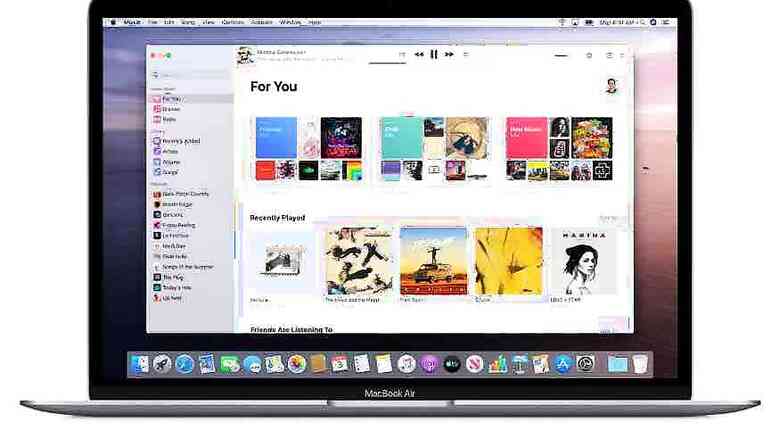
views
The Apple macOS Catalina operating system for Mac computing devices is rolling out and that signifies the end of an era. An era that lasted two decades, changed the way we access and manage our music libraries and always had a love-hate relationship with pretty much everyone who used it. Yes, the good old Apple iTunes app. Apple is finally retiring iTunes, something it had made clear over the summer, and is following through on that promise with the roll-out of macOS Catalina for all MacBooks, iMacs and more. iTunes, long considered the hub for all media content from Apple, is not exactly dead though, It will continue to live on as more focused apps—Music, Podcasts and TV. Makes sense, since these are separate apps in iOS and will be separate apps in iPadOS.
It is also keep up with the times. In the music streaming space, Apple Music has to compete with the likes of Spotify, Amazon Music, YouTube Music and more. In the TV streaming space, Apple TV will fight for the same share of the pie as Netflix, Amazon Video, Disney+, Hotstar and more. Also Read | Apple macOS Catalina Rolls Out And is Great News For Gamers And Everyone Else
The thing with iTunes was simple—anyone who used it (and many who didn’t) had an opinion on it. However, there remains no doubt that in the early 2000’s when music piracy was rampant, iTunes was exactly the antidote that the frustrated music industry needed. A digital music store that could wean users away from the likes of Napster, and the illegal music sharing it enabled. Mind you, the likes of Microsoft and Sony tried their best to also make digital music stores, but none had the sophistication when it came to running a software so complex. Apple envisioned it back then as the one single point for all media access. It started out in 2001 as the music player which no other app could compete with. It remained the companion app for iPods, and then the iPhones and iPads. Over time, iTunes got support for video playback and added Podcasts in 2005, and also added Books in 2010.
When Apple Music, the streaming service came along, it then evolved for that too. But Books—it just felt out of place. That was perhaps the first hints that iTunes over time had become bloated. That is perhaps why Craig Federighi, vice president of software at Apple, did joke during the WWDC 2019 keynote that maybe Apple could add email, calendar and Safari within iTunes, and then give it a separate app dock as well. They could see the lighter side of it.
If you still need to sync your iPhone, iPad or iPod Touch to your Mac, the Finder app will be able to do that for you—backup, restore and update functionality included.
Surely, breaking down iTunes into Music, Podcasts and TV makes sense. Each of these apps can be focused on their specialty, their demographic and in a way, also unify the experience between your Mac, iPhone and iPad. More apps may not always be better, but they can surely be better managed. And customized. And hence, a better user experience overall. You will know exactly which app to open based on what you want to consume at that time, and not have to deal with what had become a cluttered and unintuitive interface.
The need for the separate apps was perhaps greater than ever before. Apple Music is in hot pursuit of Spotify, and at last count, was closing in rapidly in terms of the user base. Remember, Spotify has an ad-supported free subscription tier as well, whereas Apple Music doesn’t. This gives users a better experience for just their music streaming needs. That is perhaps also why Apple recently launched a beta version of Apple Music for the web browser. Then there is the upcoming Apple TV+ video streaming service, to compete in the crowded space that includes Netflix, Amazon Video, Hulu, HBO Now and the soon incoming Disney+ too. Changing times mean changes in user preferences, and the morphing of iTunes is simply a sign of the times.




















Comments
0 comment